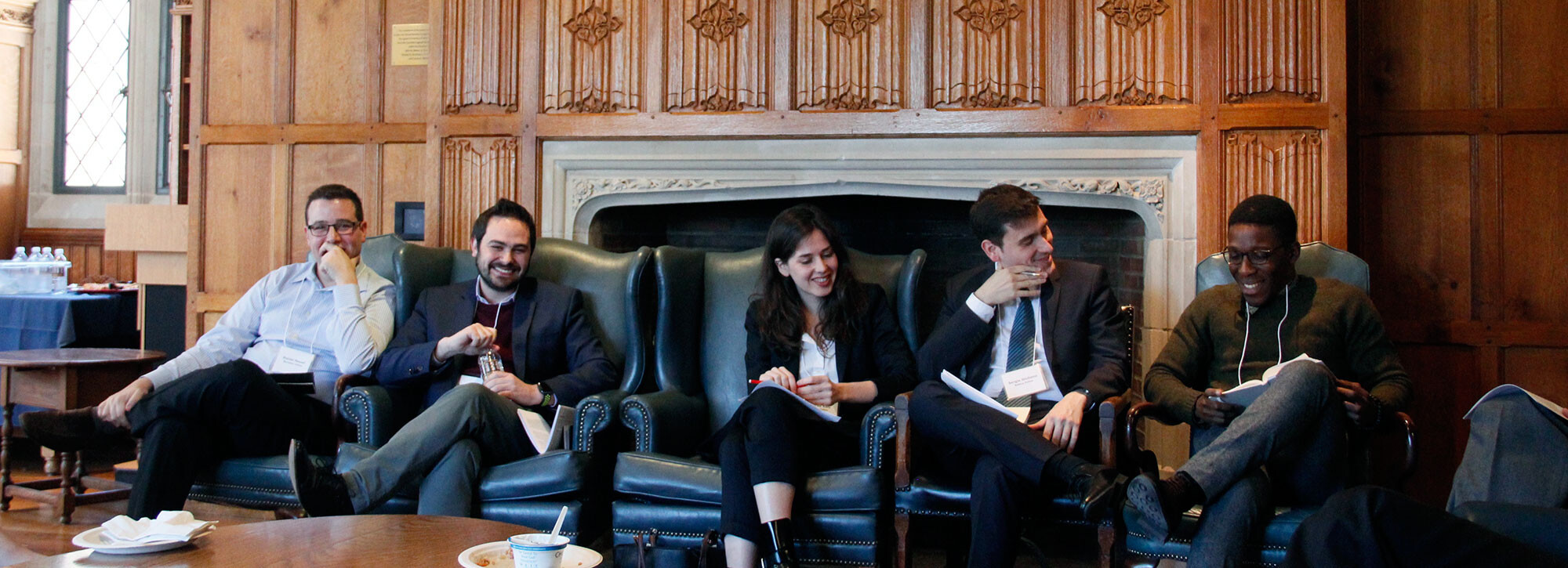Allard K. Lowenstein was a relentless opponent of injustice in the United States and throughout the world. His passionate leadership played a crucial role in the civil rights, anti-apartheid, anti-war, and human rights movements of the 1960s and 1970s.
Allard Lowenstein was born on January 16, 1929. As an undergraduate at the University of North Carolina, he was president of the National Students Association. After graduating from Yale Law School in 1954, he served two years in the U.S. Army and then went on to teach at Stanford University, North Carolina State University, and the City College of New York.
Lowenstein worked with Eleanor Roosevelt in 1957 at the American Association for the United Nations and in 1959 became foreign policy assistant to Senator Hubert H. Humphrey. He was a delegate to the Democratic National Conventions in 1960, 1964, and 1968. He was a Democratic representative to the U.S. Congress from New York from 1969 until 1971, when he became chairman of Americans for Democratic Action.
In 1977, Lowenstein was appointed head of the U.S. delegation to the 33rd annual session of the U.N. Commission on Human Rights. From August 1977 to June 1978, he was the alternate U.S. Representative for Special Political Affairs to the United Nations, with the rank of Ambassador.
Lowenstein’s unwavering dedication to fighting racism began with his opposition to the apartheid regime in South Africa. He went to South Africa several times and, in 1962, wrote Brutal Mandate, which made him one of the first Americans to publicly and forcefully protest apartheid. In 1963 and 1964, Lowenstein mobilized white college students at Yale and Stanford to volunteer for the “Freedom Summer” in Mississippi where they joined African Americans fighting for the right to vote.
Lowenstein again galvanized students in a campaign to end the Vietnam War and was a principal organizer of the movement that forced President Lyndon Johnson not to seek reelection in 1968. Thoroughly convinced that the idealistic young generation could revitalize the Democratic Party and bring about progressive reform in the United States, Lowenstein became known for his ability to inspire young people to commit themselves to lives of activism and the pursuit of justice. “It is beyond dispute,” David Broder wrote, “that he brought more young people into American politics than any individual of our time.”
Allard Lowenstein was assassinated on March 14, 1980. The inscription on his headstone is from a note Robert F. Kennedy once sent him, quoting Emerson: “If a single man plants himself on his convictions and there abide, the huge world will come around to him.”
After Lowenstein’s death, a group of Yale law students established the Allard K. Lowenstein International Human Rights Project in his honor. The Allard K. Lowenstein International Human Rights Clinic grew out of the Lowenstein Project and was established in 1989.
